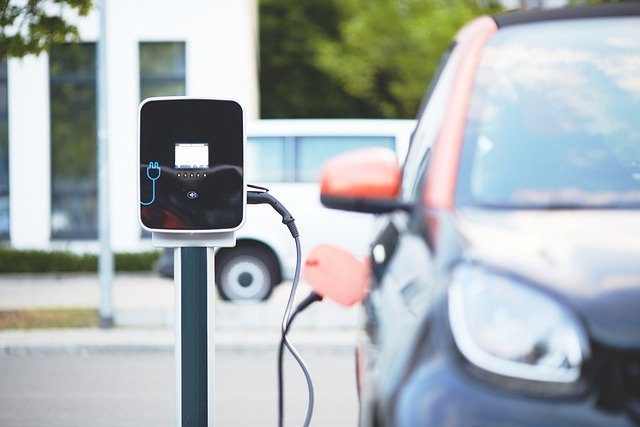The Rise of Electric Cars: Driving Towards a Greener Future
Electric cars have become increasingly popular in recent years, revolutionizing the automotive industry and offering a more sustainable alternative to traditional gasoline-powered vehicles. As the world grapples with climate change and the need for eco-friendly transportation solutions, electric cars have emerged as a promising solution to reduce carbon emissions and dependence on fossil fuels. This article explores the world of electric cars, their benefits, challenges, and the impact they are having on the future of mobility.

What exactly are electric cars and how do they work?
Electric cars, also known as electric vehicles (EVs), are automobiles powered by rechargeable batteries instead of internal combustion engines. These vehicles use electric motors to convert stored electrical energy into mechanical energy, propelling the car forward. The modern electric drive system typically consists of an electric motor, a battery pack, and a controller that manages power distribution. Unlike conventional cars that burn fuel to generate power, electric cars rely on electricity stored in their batteries, which can be recharged by plugging into a charging station or outlet.
What are the main benefits of electric cars?
One of the primary advantages of electric cars is their eco-friendly nature. By eliminating tailpipe emissions, electric vehicles significantly reduce air pollution and greenhouse gas emissions, contributing to cleaner air and a healthier environment. Additionally, electric cars are more energy-efficient than their gasoline counterparts, converting a higher percentage of energy into motion. They also offer lower operating costs, as electricity is generally cheaper than petrol or diesel fuel. Moreover, electric cars provide a quieter and smoother driving experience due to their simplified drivetrain and lack of engine noise.
What challenges do electric cars face in widespread adoption?
Despite their numerous benefits, electric cars still face several challenges that hinder their widespread adoption. One of the main concerns is range anxiety – the fear of running out of battery power during a journey. While battery technology has improved significantly, many electric cars still have a limited driving range compared to conventional vehicles. Another obstacle is the lack of charging infrastructure, particularly in rural areas or on long-distance routes. The time required to recharge an electric car can also be a drawback, as it typically takes longer than refueling a gasoline vehicle.
How is battery technology evolving for electric cars?
Battery technology is at the heart of electric car development, and significant progress has been made in recent years. Modern electric drive systems now incorporate more advanced lithium-ion batteries with higher energy density, allowing for longer driving ranges and faster charging times. Researchers are also exploring new battery chemistries, such as solid-state batteries, which promise even greater energy storage capacity and improved safety. As battery technology continues to evolve, we can expect to see electric cars with longer ranges, shorter charging times, and lower costs in the future.
What impact are electric cars having on the automotive industry?
The rise of electric cars is transforming the automotive industry in numerous ways. Traditional automakers are investing heavily in electric vehicle development and production, while new players like Tesla have emerged as major competitors. This shift is driving innovation in vehicle design, manufacturing processes, and supply chains. The industry is also witnessing changes in the aftermarket sector, with new businesses emerging to cater to electric car maintenance and charging needs. Furthermore, the growth of electric cars is influencing government policies, with many countries introducing incentives and regulations to promote their adoption.
How do the costs of electric cars compare to conventional vehicles?
While electric cars have historically been more expensive to purchase than their gasoline counterparts, the gap is narrowing as technology improves and production scales up. To provide a clearer picture of the current market, here’s a comparison of some popular electric cars and their conventional counterparts in the United Kingdom:
| Vehicle Type | Model | Starting Price (GBP) | Fuel Economy | Annual Fuel Cost* |
|---|---|---|---|---|
| Electric | Nissan Leaf | £26,995 | 4.0 mi/kWh | £420 |
| Conventional | Ford Focus | £22,215 | 49.6 mpg | £1,050 |
| Electric | Tesla Model 3 | £42,990 | 4.4 mi/kWh | £380 |
| Conventional | BMW 3 Series | £33,250 | 44.8 mpg | £1,160 |
| Electric | Volkswagen ID.3 | £32,300 | 4.2 mi/kWh | £400 |
| Conventional | Volkswagen Golf | £23,360 | 51.4 mpg | £1,010 |
*Annual fuel costs are estimated based on 12,000 miles per year and average UK electricity and petrol prices as of 2023.
Prices, rates, or cost estimates mentioned in this article are based on the latest available information but may change over time. Independent research is advised before making financial decisions.
While the initial purchase price of electric cars is generally higher, they often have lower running costs due to cheaper “fuel” (electricity) and reduced maintenance requirements. Over time, these savings can offset the higher upfront cost, especially for high-mileage drivers. Additionally, government incentives and tax breaks in many countries can further reduce the cost of electric car ownership.
In conclusion, electric cars represent a significant shift in the automotive landscape, offering a more sustainable and efficient mode of transportation. As battery-powered mobility continues to evolve and improve, we can expect to see electric vehicles playing an increasingly important role in shaping the future of transportation. While challenges remain, the ongoing advancements in technology and infrastructure are paving the way for a greener, cleaner future on our roads.




